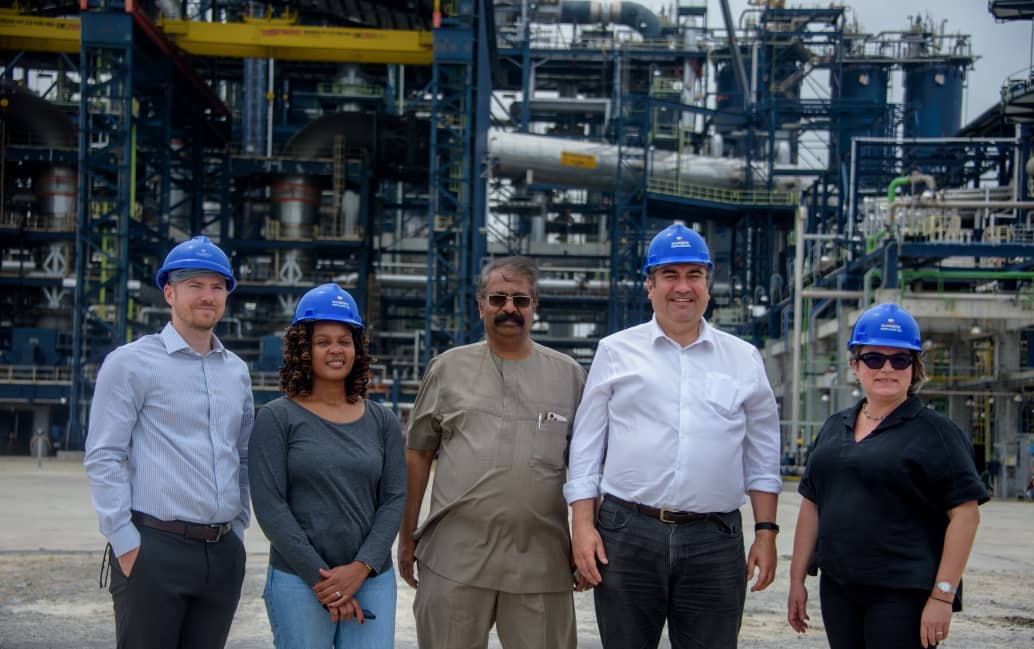By Barnabas Esiet.
International rating agency S&P Global has assessed the Dangote Oil Refinery and Petrochemicals company, with a capacity of 650,000 barrels per day (bpd), as having the potential to resolve Nigeria’s foreign exchange (forex) crisis.
During an on-site visit to the refinery in Lagos, S&P Global’s team, accompanied by officials from the Nigerian Ministry of Finance, acknowledged the refinery’s capability to bolster Nigeria’s oil sector and positively impact its economy.
Ravi Bhatia, Director and Lead Analyst, Sovereign and International Public Finance Ratings, S&P Global Ratings, who led the delegation to Lagos, believes Dangote refinery would transform Nigeria into a net exporter of petroleum products.
He highlighted that this transformation will boost revenue generation and lessen the current pressure on the country’s foreign exchange reserves.
Bhatia stated, ” Nigeria is a big exporter of crude but has issues with importing refined fuels. So, there is a gap in the market where crude can be refined in Nigeria, save money that way, and potentially save some foreign exchange.
“This will be positive for the economy in the medium term. It looks positive from our assessment,” Bhatia said after an over four-hour tour of the facility.
Vice President of Oil and Gas at Dangote Industries Limited (DIL), Devakumar Edwin, who led the team during the tour of the facility, restated that the company will commence production of premium motor spirit (PMS), this July as earlier announced.
With advanced technologies and quality control measures in place, the refinery aims to promote industrial development, job creation, and economic prosperity in Nigeria.
The $20 billion Dangote refinery is the largest single-train refinery complex in the world. Currently operating at 350,000 barrels per day capacity, it is scheduled to scale up production to at least 500,000 barrels per day within July and August, leading to refining of petrol and ultra-low sulphur diesel.
This increase in refining capacity is expected to reduce Nigeria’s reliance on imported refined products, which currently amounts to at least 50 million liters of petrol per day.
In 2023, Nigeria spent N12 trillion on importation of petroleum products, representing an 18.68% increase compared to the previous year.
The Dangote refinery’s potential to reduce this import burden and generate foreign exchange earnings has been acknowledged by S&P Global, highlighting its significance in addressing Nigeria’s forex woes.









Comment here